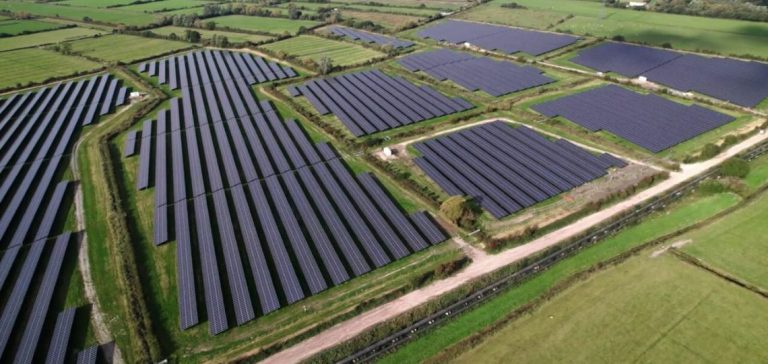Estonia has taken a new step in the development of solar energy with the opening of the largest solar park in the Baltic States in Kirikmäe, Pärnu County. This project is the result of a partnership between the Estonian energy company Evecon and Mirova, an asset manager dedicated to sustainable finance.
The Kirikmäe solar park, with an installed capacity of 77.53 MW, covers 110 hectares. It is estimated to produce enough electricity to meet the annual needs of 35,000 households, more than twice the capacity of the largest existing solar park in Estonia. This project is managed by the Baltic Renewable Energy Platform (BREP), a joint venture founded by Evecon and Mirova in December 2022. BREP aims to develop a portfolio of over 100 MWp of solar parks in the country.
Rapid expansion of solar capacity
The construction of this park took only six months, a record for projects of this magnitude. The work began in April under the supervision of Wiso Engineering, mobilizing up to 250 workers at the peak of activity. “The speed of execution of this project demonstrates the potential for accelerated development of renewable energy in Estonia,” said Karl Kull, CEO of Evecon.
The Kirikmäe park is part of a broader strategy to expand the country’s solar capacity. With the recent commissioning of the Imavere and Lohu mets solar parks, the region added more than 100 MW of new solar capacity to the Estonian grid in just one week. This accounts for about one-tenth of the total currently installed solar capacity in Estonia.
Strategic partnership for energy transition
Mirova, as a financial and strategic partner, invested in this project through its energy transition funds. “Our mission is to build new capacity alongside industrial partners in Europe,” said Raphaël Lance, head of Mirova’s Energy Transition Funds. “With this project, we contribute to the decarbonization and energy independence of the Baltic States.”
In addition to its energy dimension, this project aims to support local communities. Evecon has implemented a revenue-sharing model with the municipality of Lääneranna, which will receive 0.6% of the park’s generated revenue. Although Estonian law does not require such contributions for solar energy, this initiative illustrates the company’s commitment to local communities.
Estonia’s energy goals for 2030
The development of solar capacity is part of Estonia’s national goal to cover 100% of its electricity consumption with renewable energy by 2030. Currently, Estonia ranks sixth in the European Union in terms of solar capacity per capita. Estonian Climate Minister Yoko Alender praised the project, reminding that solar energy is today the most affordable option for achieving these ambitious goals.
The park’s infrastructure includes 117,600 solar panels, provided by Canadian Solar, with a total power of 655–665 W per panel. The park’s rapid development was facilitated by close cooperation between local authorities, developers, and investors.






















